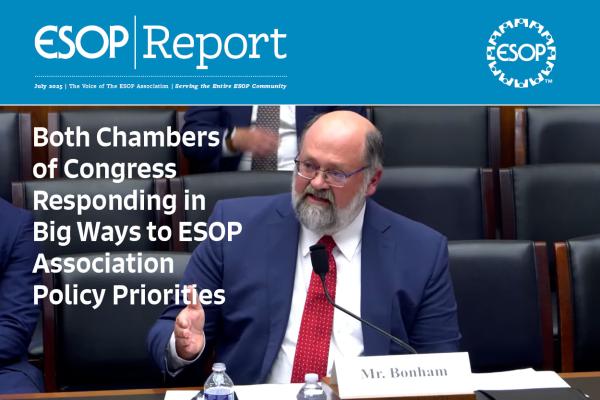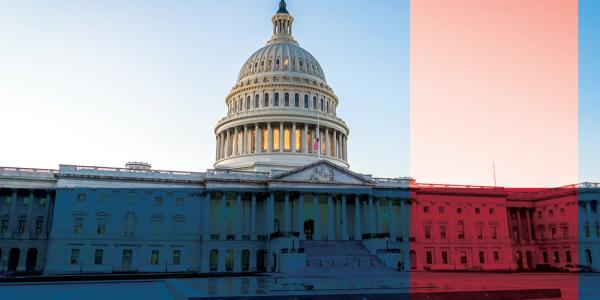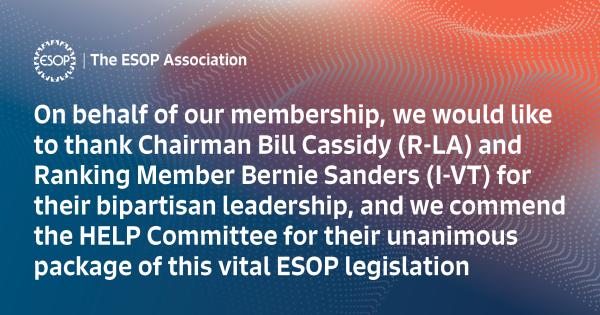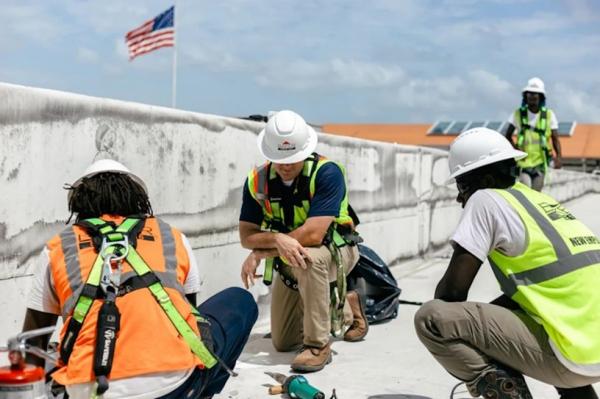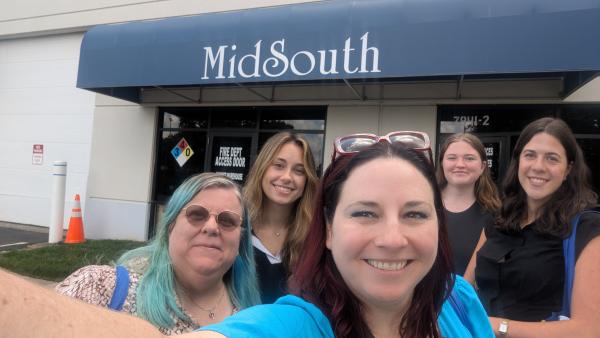Yesterday the House of Representatives passed H.R. 2471, an omnibus spending bill consisting of all 12 fiscal year 2022 appropriations bills and supplemental funding to support Ukraine.
Late last evening, in less than 48 hours after the final text was unveiled, the Senate passed this spending package that will fund the federal government through September 2022. The funding package now heads to the White House for President Biden’s signature.
Most importantly for TEA members, the bill includes some wins for employee ownership.
Employee Ownership and Business Succession Language
Accompanying these appropriations bills is a Committee report that instructs federal agencies on how to use their funds. While Committee reports don’t have the force of law, they are carefully reviewed and nearly always followed by federal agencies. The Small Business Administration (SBA) portion of the bill’s Committee report includes two victories for ESOPs, both of which are included below.
First, language was included to fully implement and support the Main Street Employee Ownership Act. In the last Congress the Main Street Employee Ownership Act was signed into law, which improved ESOP lending at the SBA and supported the transition to employee ownership in several ways. The SBA is in the process of implementing this law, and so the language in the House-passed Committee report emphasizes the MSEOA’s importance and the urgency needed to see it put into place. It also directs the SBA to work with other Departments to expand outreach on employee ownership in several ways.
“Employee Ownership.—The Committee recognizes that employee owned businesses are uniquely structured and provide wide-ranging benefits for businesses, workers, and the local economy. The Committee notes that the Main Street Employee Ownership Act, which Congress enacted in section 862 of Public Law 115–232, requires SBA to make structural changes in SBA lending programs to ease the challenges faced by employee-owned businesses in accessing financing. This legislation also requires SBA to use Small Business Development Centers (SBDCs) establish an employee owned business promotion program to provide assistance on structure, business succession, and planning. SBA is directed to fully implement these requirements. The Committee further directs SBA to work with the Departments of Agriculture, Labor, and Commerce to provide education and outreach to businesses, employees and financial institutions about employee-ownership, including cooperatives and employee stock ownership plans; provide technical assistance to assist employees’ efforts to become businesses; and assist in accessing capital sources.”
Second, the Committee report also includes a provision that addresses the need for more education related to business succession planning. TEA has been pushing the issue of the “silver tsunami” and the need for business succession planning, so now TEA can work with SBA to increase awareness about how employee ownership promotes sound business succession plans.
“Small Business Succession Planning. —The Committee is concerned that more than 58 percent of businesses do not have succession plans. The Committee encourages SBA to work with its resource partners to develop guidance, training, best practices, workshops, and other resources to assist small business owners and entrepreneurs in establishing and executing a business succession plan. In addition, SBA should consider the development of a publicly available online toolkit that can be used by SBA and its resource partners to guide small businesses through the process of creating a business succession plan.”
Additionally, this bill provides $158,000 for the Vermont Employee Ownership Center in Burlington, Vermont.
Also of note is the funding levels for relevant federal departments and agencies, including:
Department of Labor
The bill provides a total of $13.2 billion in discretionary appropriations for the DOL, an increase of $653 million above the FY 2021 enacted level.
- This includes $186 million for the Employee Benefits Security Administration, which is an increase of $5 million above the FY 2021 enacted level.
- Importantly, this bill does not include the dramatic budget “plus up” of nearly $200 million over 5 years for EBSA that was proposed in the Build Back Better legislation.
Small Business Administration (SBA)
The bill provides a total of $1 billion for SBA, an increase of $109 million above the FY 2021 enacted level.
- This includes $138 million for Small Business Development Centers, which is $2 million above the FY 2021 enacted level.
- TEA was instrumental last year in securing language in the February COVID relief bill that made ESOPs and ESOP education an allowable expense/activity under the SBDIC program.




